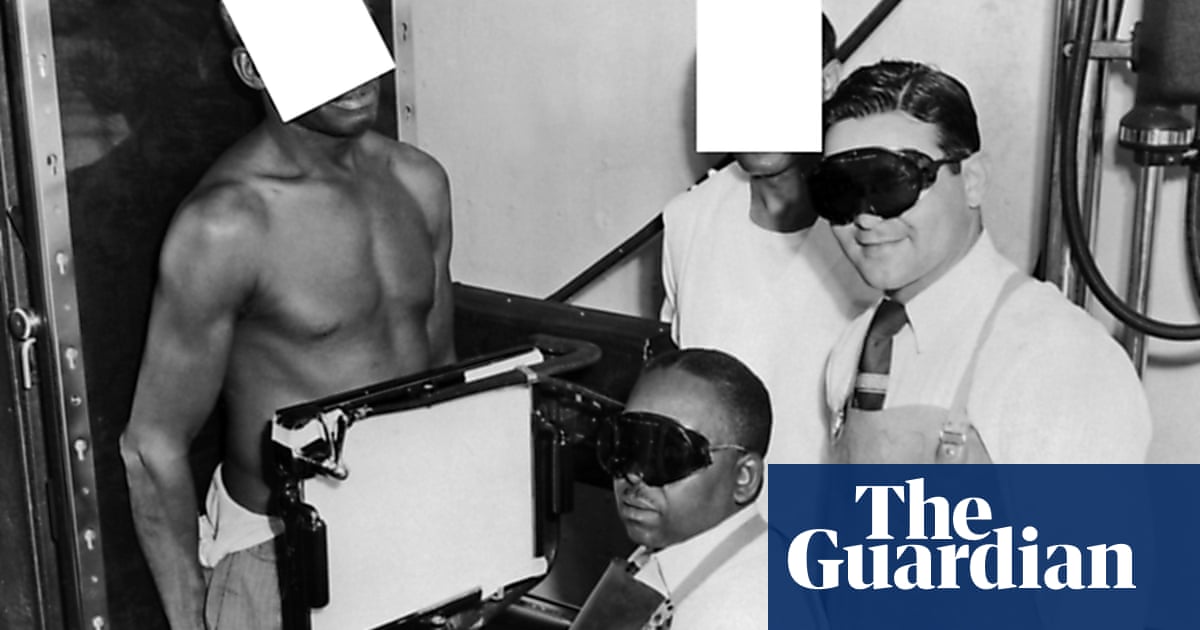
The long-running series in which readers answer other readers’ questions on subjects ranging from trivial flights of fancy to profound scientific and philosophical concepts
Sun 3 Nov 2024 14.00 GMT
Share
In a recent interview with Ice-T in the Guardian, he mentioned that there are no happy stories about the future. There are certainly plenty of the opposite; I am sure a dystopian section at a book store could rival the history shelves in size. Can readers offer examples of books, movies or other works of fiction that have a more optimistic view of the future? John, by email
Send new questions to nq@theguardian.com.
Readers reply
Drinking Sapphire Wine by Tanith Lee is set in a future utopia, where humanity can play, change form or sex/gender to whatever they like and enjoy a responsibility-free life of leisure and indulgence. And therein lies the rub: without hardship or struggle, what is the point? Kintyrelass
Asimov’s work tends towards an optimistic view of the future, with his Foundation series well worth reading. Sagarmatha1953
You in Your Small Corner
TV archive discovers couple who beat Kirk and Uhura to first interracial kiss
Read more
Star Trek has offered an optimistic vision of the future from the beginning, with a diverse (human) crew and one of the first interracial kisses on television (between Captain Kirk and Lieutenant Uhura). For an optimistic way forward out of the world’s current challenges, there is The Ministry for the Future by Kim Stanley Robinson, which offers thought-provoking and often genuinely practical solutions for tackling climate change, the ills of social media and oligarchy. Hesfalleninthewater
Always Coming Home by Ursula K Le Guin portrays a post-apocalyptic future that is workable, and very different from our own, although the forms of the society are forged by the lack of resources due to previous consumption and destruction. It’s a positive book, in a way. mapejrano
Le Guin’s novel The Dispossessed: An Ambiguous Utopia is what it says. If you can track down the Northern Irish writer James White’s Sector General series from the second half of the 20th century, there’s less ambiguity: the multi-species staff of an interplanetary hospital meet an entertaining array of biological and cultural puzzles, but never one they can’t solve. And Lois McMaster Bujold’s multi-Hugo award-winning Vorkosigan series isn’t actually a perfect future, but is one in which the characters believe in progress and their ability to deliver it. pml1003
Cover Books Ulysses
Dangerous, voyeuristic, transgressive, exciting: Anne Enright on James Joyce’s Ulysses at 100
Read more
James Joyce’s Ulysses ends on the most upbeat and optimistic word in the English lexicon. Reading Molly’s monologue always leaves me with hope in my heart. musicforpleasure
Iain M Banks’s Culture novels. To quote Wikipedia, the Culture is “a utopian, post-scarcity space society of humanoid aliens and advanced superintelligent artificial intelligences living in artificial habitats spread across the Milky Way galaxy”. Unfortunately, humans aren’t really involved; when a representative from the Culture does take an interest in humans, they argue that the whole “incontestably neurotic and clinically insane species” should be eradicated via a black hole. They probably have a point. WeAreMadeInTheDark
Earth Abides by George R Stewart, published in 1949. It’s a dystopian novel where the hero is one of the few survivors of a worldwide pandemic. At the end of the story, he’s an old man and he realises humans and life will endure in the hands of the young ones. They have ideas and plans. alanaincanada
Jane Austen, who was born in 1775, wrote at least six novels that are still read and have been made into popular movies, no doubt because all her stories are well-plotted romances whose endearing characters are authentic, resolutely optimistic and happily married by the last chapter. RPOrlando
Any text with the words “election manifesto” in the title probably qualifies. EddieChorepost
I think it’s a matter of perspective when one ponders the nature of optimism. The Hitchhiker’s Guide to the Galaxy by Douglas Adams uses Earth’s pointless destruction as a comedy prop, which always struck me as fundamentally optimistic. Dorkalicious
Virgil’s Aeneid has travelled with me through life
Charlotte Higgins
Charlotte Higgins
Read more
Virgil’s Aeneid. No, Aeneas’s travails are neither easy nor pleasant. The epic ends with Aeneas coldly and swiftly murdering the villainous Turnus - an abrupt ending, without any conclusion. It feels as if Virgil simply dropped his stylus here – the end. Finis.
And yet what this epic promises to its contemporaneous Roman readers in the first century AD is a glorious vision of the future: a world for ever ruled by the benign Roman empire, for ever led by a pious and just emperor; a world in which subjugated peoples would be treated with honour and kindness by the Roman elites; a world in which only the wicked and the ungodly would be punished for their dishonourable antics.
This future Roman-dominated world would have no borders, neither geographical nor in time, as it would be an empire sine finem – it would span the Earth and never end. And each emperor succeeding to the throne would strive to be equally (or even more) just, pious and modest as the previous emperor.
The only catch is a minor one: the beautiful elites of the future must wear togas. Everything else would be quaint. GreenTwilek
The Brexiters’ predictions. Martin P












